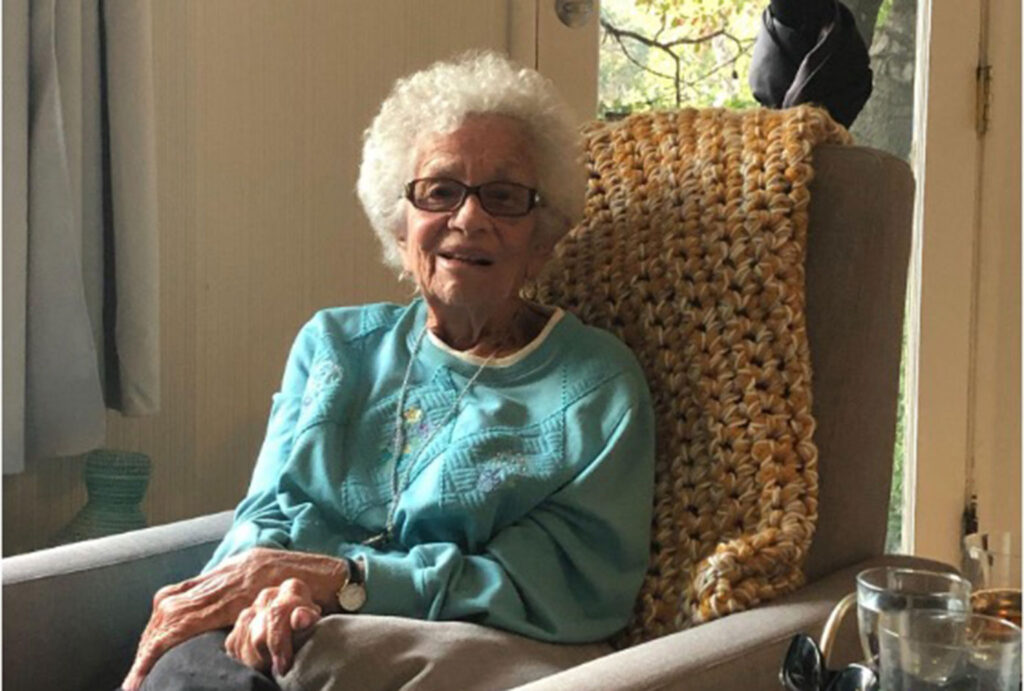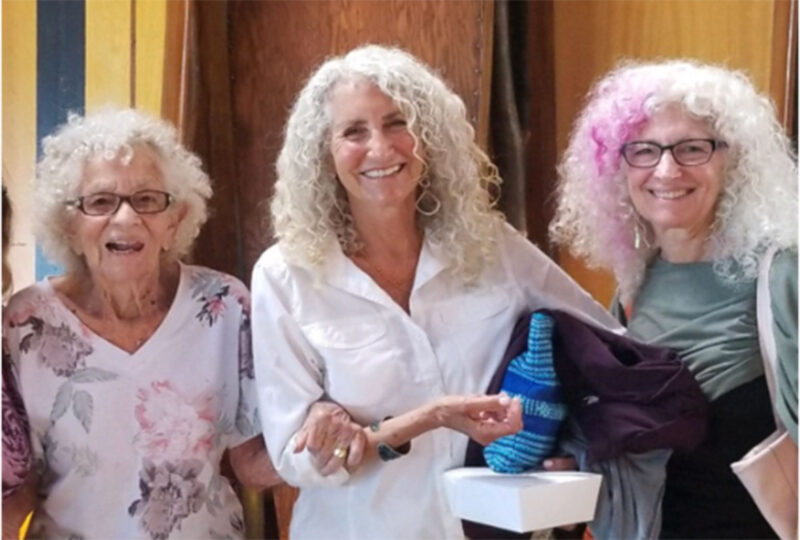Sometimes in life, we unexpectedly must take on new roles. For Janie Emaus that was serving as a caregiver for both her physically challenged husband and 97-year-old mother who suffers from dementia.
After Janie’s father died 10 years ago, Janie’s mother, Sylvia, moved into a retirement home. But it wasn’t long before Sylvia grew increasingly miserable and unhappy.
“So, she came here to live with me and my husband throughout the years, and she just slowly got more dependent on me,” Janie said. “She was also hospitalized for a fall that broke a rib and caused her to have trouble breathing.”

Yet, the challenges for Janie didn’t stop there. In 2013, Janie’s husband suffered from a brain tumor, which has confined him to a wheelchair, and over time, he’s grown physically weaker.
Like Janie, many caregivers will tell you that while preparing meals, helping with housekeeping, providing companionship and assisting loved ones with basic needs can be challenging, those daily tasks are far from the hardest part of the role. Rather, it’s learning how to provide the best care for someone who suffers from the early stages of dementia and how to maintain patience and compassion.
“There have been times I’ve yelled at her because she just keeps asking me the same thing over and over, and then I really get upset with myself,” Janie said. “But I am learning that you have to have patience and not yell because yelling only makes things worse.”
Learning how to balance it all
Taking care of a person with a physical disability or a certain health condition like dementia brings many challenges, especially because each person’s health condition can progress differently. But Janie said establishing a routine allowed her to help balance the needs of her loved ones, including her own.
Typically up by 7 each morning, Janie prepares breakfast for her husband (who wakes up around 8), then cares for her mother, who gets up later in the morning. Throughout the day, she attends to their needs along with other house errands. Afterward, she prepares dinner and helps both get into bed—only then is she allowed to wind down for the night.
“It gets a little crazy, especially since my husband likes to eat dinner early, and my mom gets agitated since she’ll get sundowners, where she’s not sure if it’s day or night,” she said. “It sometimes gets overwhelming as well because they’re both calling me at the same time, like if they need help getting into the bathroom.”
But because Janie established a routine with both her mother and husband, it all works out.
She said assistance from other caregivers has helped her with her loved ones’ basic daily needs and house chores when she can’t attend to them.
“We do have a caregiver who comes and helps out three days a week for a few hours, but I mostly take care of them,” Janie said. “But I am getting to the point where I’m going to need somebody a little more than that.”
Importance of making time for yourself
Even though Janie fills most of her day taking care of her mother and husband, she said it’s just as important to find time for yourself. Her go-to? Maybe going for a walk, writing, or focusing on her book and online blog.
“It’s so important for caregivers to have ‘me’ time,” she said. “I have to get my writing and exercise in, even if it’s for an hour. Take the time that you need for yourself, if you swim, walk, or even if it’s just meditating. Because if you’re not healthy, you’re not going to be any good for anybody.”
Finding joy during the caregiving journey
Being a primary caregiver comes with a lot of responsibility and is certainly not an easy task, but for Janie, it’s a decision she wouldn’t have made any other way. Even though she gets angry or overwhelmed at times, she said she does her best to stay upbeat and positive—and always tries to find a way to laugh, even with her mother.
“My mother loves to drink, and she likes going out,” she said, “so sometimes we’ll go out to dinner, we’ll go sit at a bar, just the two of us.”
For other caregivers who may be in a similar situation, Janie added that having patience, avoiding yelling and arguing, and finding time for yourself are all key aspects to having a more joyful and intentional caregiving journey—even if it’s a role you didn’t expect or plan to take on.
“My mother never wanted to be where she is, but now that she’s here, she doesn’t realize it. Some days she says I don’t want to be such a burden on you, but it just happened and she’s not a burden,” Janie said. “I couldn’t live with myself knowing she’s in some other place, being somewhere where she’s just lonely. She’s never been lonely here. So, I feel fortunate and lucky that I get to spend this time with my mom.”

